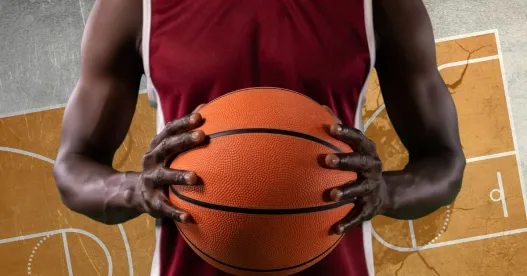A little more than two years ago, James Wiseman was the University of Memphis’ prize recruit expected to lead that school back to the Final Four. Now, following his very limited college career that was plagued by allegations of NCAA rules violations and an NCAA declaration of ineligibility for 12 games, his name may be tied more clearly to an historic piece of federal legislation, The NCAA Accountability Act of 2021, than his feats on the basketball court.
The initial challenge to Wiseman’s eligibility arose after the NCAA declared current basketball Coach Penny Hardaway a lifetime University of Memphis athletics booster because he had previously donated to the University. As a result, Hardaway’s providing $11,500 to Wiseman’s mother to cover the family’s moving expenses to Memphis, at a time when Hardaway was not employed by the University of Memphis or any other NCAA institution, was deemed a violation of NCAA bylaws.
Despite securing a state court injunction allowing him to play, Wiseman later dropped his legal action and the NCAA handed him a 12-game suspension. Ultimately, Wiseman withdrew from the university and waited for the NBA draft the following spring.
Although Wiseman was no longer enrolled at the university, the NCAA subsequently asserted rules violations against the university for honoring the state court injunction and allowing Wiseman to play in three games.
That NCAA case is still pending and is believed to be the motivation for three members of Congress to introduce The NCAA Accountability Act.
The bipartisan bill, introduced by Rep. David Kustoff (R-Tenn.), an alumnus of the University of Memphis, former NFL player Rep. Burgess Owens (R-Utah), and Rep. Josh Harder (D-Cal.) would formally establish due process protections for universities and individuals accused of NCAA regulatory violations. It would completely alter and revise the current NCAA infractions process and investigative method used by the NCAA.
The bill proposes to formally establish and mandate due process protections for NCAA institutional members, student-athletes, coaches, and administrators who have been accused of NCAA bylaw violations or asked to participate in any investigation involving alleged NCAA bylaw violations.
Commenting on his proposed legislation, Rep. Kustoff stated, “The NCAA infractions process is systemically flawed. The NCAA writes the rules, and punishes universities at will.”
Kustoff continued,
“[W]hen you consider that the NCAA … is the prosecutor, the judge, the jury and the executioner. That seems to me to be a violation of due process.”
Among the changes proposed is a new requirement that the NCAA complete an investigation within one year of its introduction, as well as a new statute of limitations that would prevent the NCAA from penalizing anyone for a violation that occurred more than two years before.
The bill also would drastically revise the existing appeals process and give the accused the right to resolve disputes through the use of an independent three-person arbitration panel, require the NCAA to submit annual reports on the status of infractions cases to the Department of Justice (DOJ), as well as submit separate reports to the Attorney General of each state, summarizing its interactions with NCAA member schools locate within that state.
The legislation would authorize the DOJ to remove any member of the NCAA’s Board of Governors and fine the NCAA up to $15 million for failure to follow the regulations as required by the legislation. It also would prevent “confidential sources” from being used by the NCAA as a basis for any of its findings in the enforcement process and limit the ability of the NCAA’s public disclosures regarding an ongoing investigation until formal charges are filed.
Congressman Owens, a former NCAA athlete stated, “The NCAA Accountability Act is a commonsense charge to level the playing field by eliminating favoritism and bias in college athletics through increased transparency in rule enforcement and due process protections.”
Despite recent federal legislation proposals with regard to student-athlete name, image and likeness rights and efforts to amend the National Labor Relations Act to make student-athletes university employees eligible to unionize, these bills have stalled in Congress.




 />i
/>i

